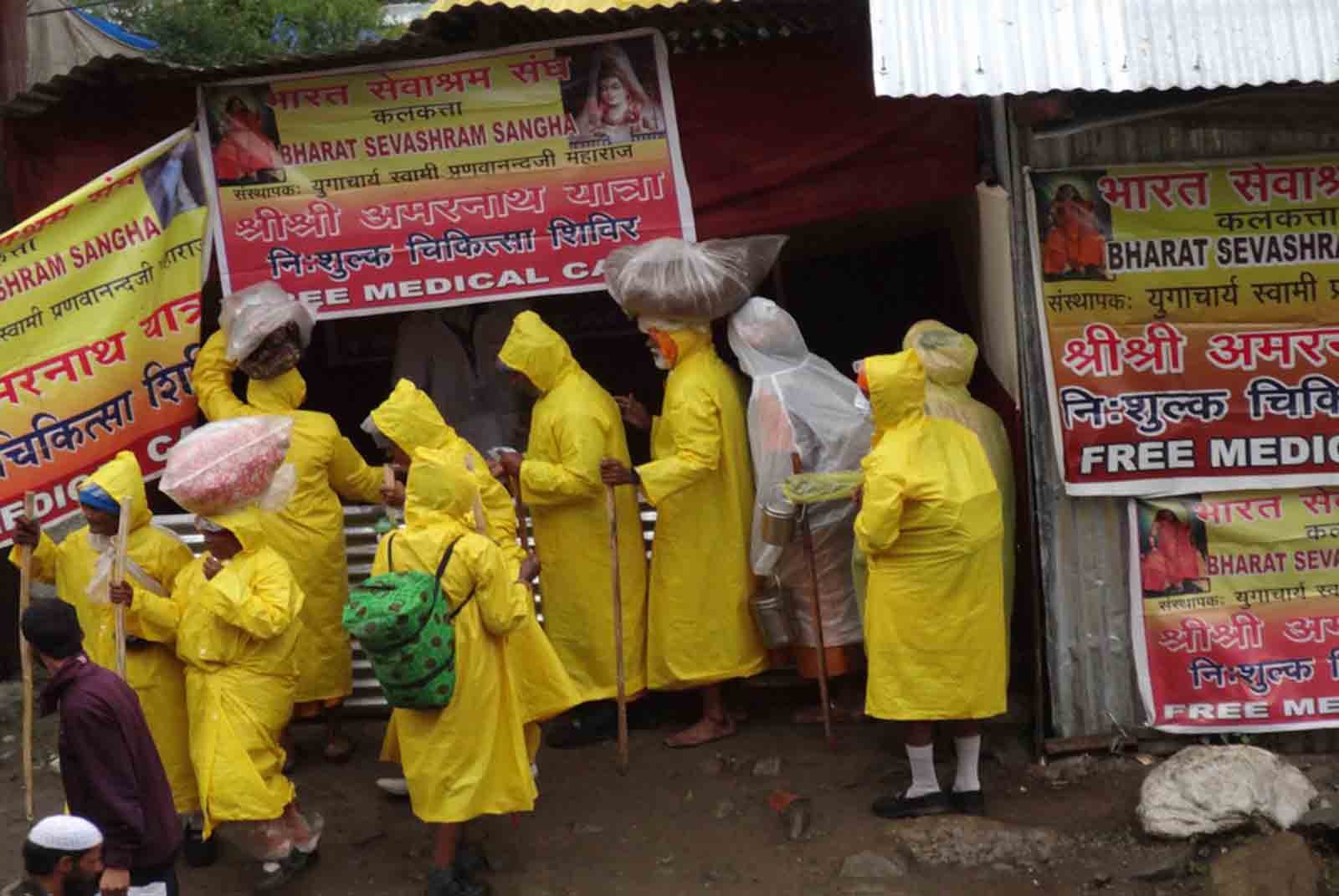Embarking on the sacred Amarnath Pilgrimage involves demanding high-altitude trekking, reaching up to 14,000 feet. To ensure a safe and fulfilling journey, understanding and addressing High Altitude Sickness (HAS) is crucial.
Recognizing and Managing HAS:
- Be aware of HAS symptoms: loss of appetite, nausea, fatigue, dizziness, difficulty sleeping, vision issues, and more (full list provided).
- Act quickly: If you experience these, immediate descent to lower altitudes is vital. Untreated HAS can be fatal within hours.
Essential Dos for Prevention:
- Train: Start preparing at least a month prior with daily walks (4-5 km) and deep breathing exercises for improved oxygen efficiency.
- Consult your doctor: Discuss any pre-existing medical conditions and get clearance for high-altitude travel.
- Ascend slowly: Acclimatize gradually, taking breaks on steep inclines and avoiding overexertion.
- Rest strategically: Follow mandatory rest stops and adhere to recommended walking times between locations.
- Hydrate diligently: Aim for 5 liters of fluids daily to combat dehydration and headaches.
- Fuel your body: Choose the prescribed food menu (available online) and prioritize carbohydrates for energy.
- Be prepared: Consider portable oxygen for breathing difficulties.
- Seek medical help: Immediately contact the nearest medical facility (every 2 km) for any health concerns, including HAS symptoms.
- Prioritize health updates: If your health changes after obtaining your CHC, consult your doctor before embarking on the pilgrimage.
Remember:
- Never ignore HAS symptoms.
- Avoid alcohol, caffeine, and smoking.
- Descend immediately if experiencing HAS.
- Don’t rely on the judgment of someone exhibiting HAS symptoms.
Additional Tips:
- Pack essential medications, warm clothing, sturdy shoes, and gear suitable for the harsh climate.
- Stay informed about weather conditions and Pilgrimage guidelines through the official website and app.
- Listen to your body, pace yourself, and prioritize safety throughout the journey.
15 FAQs for a Safe & Healthy Amarnath Pilgrimage: Mastering Your High Altitude Journey
Understanding High Altitude Sickness (HAS):
- Q: What is HAS and what are its symptoms? A: HAS affects individuals at high altitudes, causing loss of appetite, nausea, fatigue, dizziness, and more (see content for full list).
- Q: How dangerous is HAS? A: If untreated, HAS can be fatal within hours. Immediate descent to lower altitudes is crucial.
- Q: Who’s more susceptible to HAS? A: While anyone can experience it, pre-existing medical conditions and lack of preparation increase risk.
Preventive Measures & Pre-Pilgrimage Preparation:
- Q: How can I prepare for the physical demands of the Pilgrimage? A: Start training at least a month prior with daily walks and breathing exercises. Consult your doctor if you have any concerns.
- Q: What steps should I take if I have a pre-existing medical condition? A: Discuss your condition with your doctor and obtain clearance for high-altitude travel before participating in the Pilgrimage.
- Q: What’s the importance of ascending slowly and taking breaks? A: Gradual acclimatization helps your body adjust to the reduced oxygen levels at high altitudes, preventing HAS.
- Q: How much water should I be drinking during the Pilgrimage? A: Aim for 5 liters of fluids daily to combat dehydration, a major contributor to HAS.
- Q: What kind of food should I eat on the Pilgrimage? A: Follow the prescribed food menu (available online) to ensure proper energy levels and minimize altitude sickness risk.
Addressing HAS & Seeking Help:
- Q: What should I do if I experience HAS symptoms? A: Descend immediately to a lower altitude. Seek medical help at the nearest facility (every 2 km) and avoid further ascent.
- Q: What if my health changes after obtaining my CHC? A: Consult your doctor immediately and address any concerns before embarking on the Pilgrimage.
- Q: Are there any precautions I should take regarding medications? A: Consult your doctor before taking any medications during the Pilgrimage, especially at high altitudes.
Additional Tips & Safety Reminders:
- Q: What essential items should I pack for the Pilgrimage? A: Medications, warm clothing, sturdy shoes, gear for harsh weather, sunscreen, and lip balm are crucial.
- Q: How can I stay informed about Pilgrimage guidelines and weather conditions? A: Refer to the official website and app of the Shri Amarnathji Shrine Board for updates.
- Q: What’s the best way to pace myself during the trek? A: Listen to your body, avoid overexertion, and take breaks as needed. Prioritize safety throughout the journey.
- Q: Where can I get more information or assistance? A: The official website and app of the Shri Amarnathji Shrine Board offer valuable resources. For specific medical concerns, consult your doctor.
Disclaimer: This information is for general awareness only and cannot replace professional medical advice. Always consult your doctor before undertaking any strenuous activity, especially at high altitudes.


